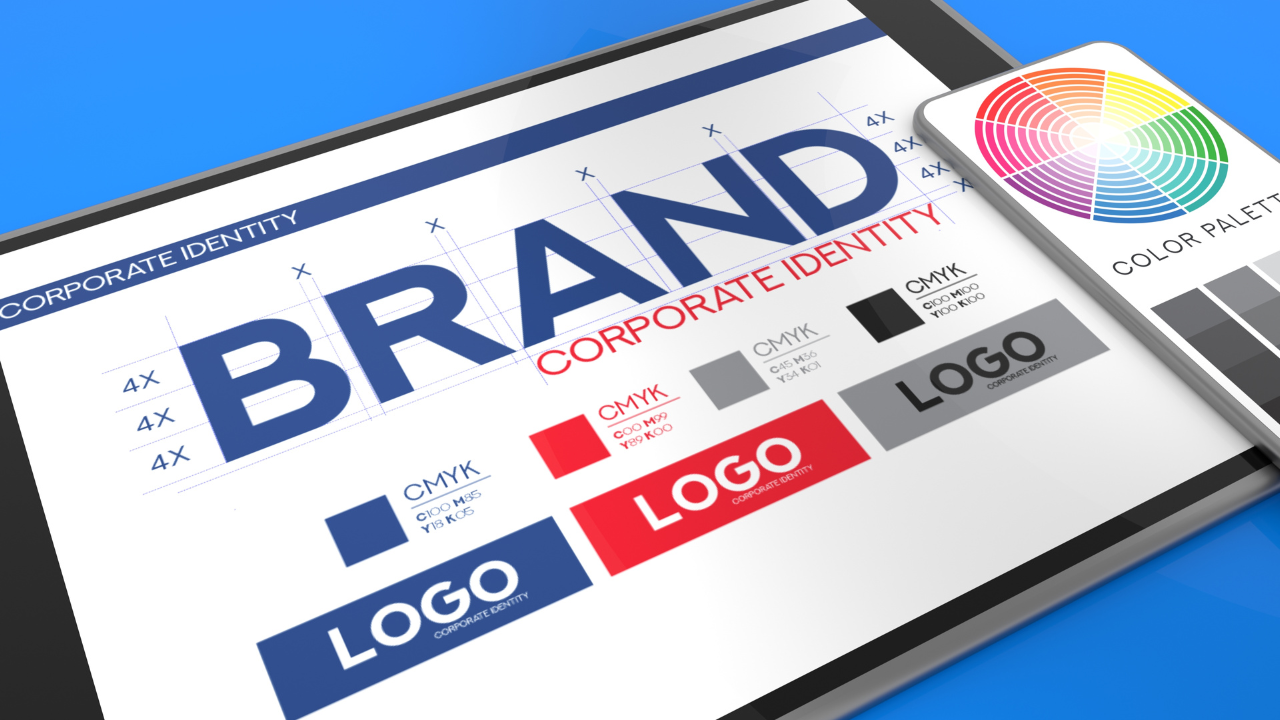Introduction: Stepping Into the Digital World
Gone are the days when traditional marketing channels like television advertising and print ruled the scene. Today, marketing on internet has become the go-to solution for businesses of all sizes, aiming to reach broader audiences with precision. In a world where internet users are growing daily, a well-crafted internet marketing strategy can be the key to unlocking untapped potential.
The rise of digital channels has completely reshaped how businesses interact with consumers. Where once you might have placed an ad in a newspaper and hoped for the best, now you can pinpoint your target audience with laser-like accuracy. Whether through social media platforms, personalised email marketing campaigns, or precise search engine marketing techniques, the modern marketer has a toolbox filled with dynamic tools designed for today’s fast-paced world.
Moreover, as mobile devices become practically extensions of ourselves, the importance of reaching consumers where they are — online — has never been greater. Consumers aren’t just browsing anymore; they’re shopping, learning, connecting, and making decisions all through digital means. Ignoring the power of online marketing today is like ignoring the invention of the telephone back in the day — it’s not just risky; it’s business suicide.
This guide isn’t about throwing jargon your way. It’s a practical, human-centred walk through what works, what doesn’t, and what’s next in internet marketing. Whether you’re a seasoned business owner in need of a digital facelift or a startup preparing for launch, this guide will help sharpen your marketing strategy and ensure you make the most of the endless opportunities available in the digital world.
Welcome to your complete guide to internet marketing — built for businesses ready to boost their online visibility, engage with potential customers, and skyrocket growth with a smart, scalable, and strategic approach.
What is Internet Marketing?
Internet marketing — also known as online marketing — involves promoting brands, products, or services over digital channels like websites, social media platforms, email, and search engines. Unlike traditional advertising, which relies heavily on physical and static mediums such as billboards, television, and newspapers, internet marketing campaigns operate dynamically and interactively across online platforms.
At its core, internet marketing is about meeting customers where they are — in the digital realm. With the rise of mobile devices and ever-increasing internet penetration, businesses have an unprecedented opportunity to engage with target customers at various touchpoints in the customer journey, paving the way for direct marketing. Whether it’s creating informative blogs that address customer pain points, launching targeted social media marketing campaigns, sending personalised email marketing messages, or placing pay per click advertising like Google Ads at the top of search results, the goal remains the same: to attract customers, nurture them, and drive conversions.
One significant advantage of internet marketing is its ability to generate immediate, measurable results. Tools like Google Analytics, social media insights, and CRM systems allow businesses to track every interaction, refining their marketing efforts for maximum ROI. Unlike traditional marketing channels, which often involve guesswork and delayed feedback, digital marketing efforts are data-driven, enabling continuous optimisation.
Additionally, internet marketing is versatile. It encompasses a broad range of digital marketing tactics — from content marketing and search engine optimization (SEO) to influencer marketing and video marketing. Each tactic can be tailored to suit the business’ unique marketing strategy, budget, and objectives, offering flexibility that traditional marketing simply can’t match.
Moreover, the interactive nature of digital channels allows for two-way communication. Brands are no longer talking at consumers but engaging with them. Social media platforms foster community-building and real-time customer support, while email marketing nurtures leads with targeted, value-driven messages.
Ultimately, internet marketing is not just an alternative to traditional advertising; it’s a necessary evolution utilized by every marketing companies. In a world where consumers expect personalisation, instant access to information, and seamless experiences, a well-executed online marketing strategy positions a business not only to survive but to thrive in the digital world.
Why Internet Marketing Matters
Global Reach and Cost-Effective Impact
With online platforms, businesses can reach audiences globally without the hefty price tag of traditional marketing methods. Unlike television advertising or print media, internet marketing campaigns like digital ads and digital advertising allow brands to engage with a worldwide target audience at a fraction of the cost. This cost-effective approach enables even small businesses and startups to compete with larger, more established players.
By leveraging digital marketing techniques like pay per click advertising and social media marketing, businesses can focus their resources where they matter most, ensuring better returns on investment. Furthermore, the scalability of online marketing means you can start small and expand your marketing efforts as your business grows.
Real-Time Engagement and Data-Driven Decisions
Thanks to digital marketing channels, businesses are no longer left guessing about the effectiveness of their campaigns. Tools such as Google Analytics, Facebook Insights, and various CRM platforms provide real-time data, enabling digital marketers to track user behaviour, campaign performance, and conversion rates instantly.
This data-driven approach allows brands to tweak and optimise their marketing campaigns on the fly, ensuring resources are used efficiently and results are maximised. Unlike the delayed feedback loops associated with traditional marketing, internet marketing offers immediate insights that inform smarter, faster business decisions.
Real-time engagement also means businesses can respond to customer inquiries, feedback, and even complaints instantly. This level of responsiveness enhances customer engagement and fosters deeper relationships, improving brand loyalty and satisfaction.
Personalisation Like Never Before
One of the biggest advantages of internet marketing is the ability to personalise interactions. By analysing user data, brands can segment their target audience based on demographics, behaviours, and preferences, delivering marketing communications that feel tailor-made.
Whether it’s customised email marketing campaigns, personalised social media posts, or targeted online advertising, personalisation ensures that each customer interaction is relevant and meaningful. This tailored approach not only increases the likelihood of conversion but also enhances the overall customer experience.
In today’s competitive landscape, consumers expect brands to understand and anticipate their needs. Digital marketing tactics empower businesses to meet these expectations, fostering trust and encouraging long-term loyalty.
Enhanced Accessibility and Inclusivity
Internet marketing breaks down traditional barriers, making it easier for businesses to be accessible to a broader audience. Through adaptive websites, accessible social media content, and multi-language support, your online value proposition and brands can cater to diverse groups, including those with disabilities or from different cultural backgrounds.
This inclusivity expands the potential customer base and reflects positively on the brand’s image, showcasing a commitment to diversity and social responsibility.
Long-Term Growth and Sustainability
Unlike short-lived traditional marketing campaigns, a well-executed online marketing strategy can yield long-term results. Through strategies like content marketing and search engine optimization, businesses build an enduring online presence that continues to attract and engage potential customers over time.
Investing in a robust digital marketing strategy ensures that businesses remain competitive and adaptable, ready to navigate the ever-changing digital landscape.
In short, internet marketing isn’t just important — it’s indispensable for modern business success.
Key Components of an Effective Internet Marketing Strategy
Search Engine Optimization (SEO)
Understanding the Power of Search Engines
Search engine optimization is the foundation of a successful digital marketing strategy. It ensures that your website ranks high on search results pages for relevant queries, making it easier for potential customers to find you.
SEO consists of:
- On-Page SEO: This includes optimising meta tags, headings, and content with the right keywords. Creating valuable content that answers users’ search intent is crucial. For more details, refer to SEO best practices to enhance your online presence in 2025.
- Off-Page SEO: Building high-quality backlinks from reputable sites enhances your site’s authority.
- Technical SEO: Improving site speed, mobile-friendliness, and having a secure (HTTPS) website are necessary for better rankings.
Investing in SEO is a long-term commitment but yields sustainable, organic traffic.
Content Marketing
The Art of Storytelling
Content marketing revolves around creating and distributing valuable content to attract and engage a clearly defined audience. It’s not just about selling — it’s about delivering information that makes your audience smarter.
Content types include:
- Blog Posts: Establish expertise and improve SEO.
- Videos: Video marketing boosts engagement and can convey complex information easily.
- Infographics and Whitepapers: Great for summarising data and providing in-depth knowledge.
Quality content builds trust, nurtures leads, and helps in establishing brand authority.
Social Media Marketing
Engaging Customers on Social Platforms
Social media marketing uses social media platforms like Facebook, Instagram, LinkedIn, and TikTok to promote products and services. It’s critical for brand awareness, customer loyalty, and even direct sales.
Important elements:
- Social Media Strategy: Developing a consistent brand voice and content schedule.
- Engagement: Replying to comments, messages, and participating in conversations.
- Influencer Marketing: Partnering with influencers who resonate with your target audience builds credibility and trust.
User-generated content and community-building further enhance customer loyalty.
Email Marketing
The Resilient Marketing Channel
Despite being one of the oldest digital marketing techniques, email marketing still boasts the highest ROI. It’s personal, direct, and highly measurable.
Successful email strategies include:
- Segmentation: Grouping subscribers based on behaviour or demographics.
- Personalisation: Addressing recipients by name and providing tailored offers.
- Automation: Drip campaigns that nurture leads based on their journey stage.
Emails keep your audience informed, engaged, and primed for conversion.
Pay Per Click Advertising (PPC)
Paid Ads for Instant Results
Pay per click advertising allows businesses to display ads on search engines like Google and pay only when someone clicks.
Benefits include:
- Immediate Visibility: Get to the top of search results quickly.
- Targeting Options: Narrow down by location, device, time of day, and even audience interests.
- Budget Control: Set daily and monthly budgets to control spend.
Platforms like Google Ads and social media networks are ideal for PPC campaigns.
Affiliate and Influencer Marketing
Partnering for Growth
Affiliate marketing rewards external partners (affiliates) for driving traffic or sales to your business. Influencer marketing leverages individuals with a large following to promote your brand.
Key advantages:
- Extended Reach: Tap into the affiliate’s or influencer’s audience.
- Performance-Based: Pay based on results, reducing risk.
- Trust Building: Influencers can humanise your brand and build consumer trust.
Both strategies are effective for expanding your brand’s reach without significant upfront costs.
Together, these components form the backbone of an effective internet marketing campaign, ensuring a holistic approach to engaging with potential customers across multiple digital platforms.
Crafting a Digital Marketing Strategy That Works
Building an effective digital marketing strategy requires more than just throwing money at online ads or randomly posting on social media platforms. It calls for a thoughtful, data-driven, and highly tailored approach that aligns with your business objectives.
Start with Clear Goals
Every successful online marketing strategy begins with setting clear, measurable goals. Are you aiming to increase brand awareness, boost sales, generate leads, or improve customer loyalty? Well-defined goals help you measure success and make data-backed decisions.
Conduct Thorough Market and Audience Research
Understanding your target audience is crucial. Dive into marketing research to uncover demographics, interests, behaviours, and pain points. Tools like Google Analytics, surveys, and social listening platforms can provide valuable insights that shape your strategy.
Knowing your competition is equally important. Analyse what your competitors are doing right and identify gaps you can exploit with better digital marketing tactics.
Choose the Right Channels
Not every channel will suit every business. Depending on where your audience spends time, you might focus on search engine marketing, social media marketing, email marketing, or a mix of various digital marketing channels. Prioritise the channels that align with your audience’s preferences and your business goals.
Create a Value-Driven Content Plan
Content is the heart of a strong internet marketing campaign. Develop a content strategy that delivers valuable content consistently across platforms. Plan blog articles, social media posts, videos, webinars, and whitepapers that address the specific needs and interests of your audience.
Maintain a consistent brand voice and ensure all content aligns with your brand’s core values and messaging.
Set a Realistic Budget
Establish a budget that reflects your goals and resources. Allocate funds across various channels — from paid ads like Google Ads to content production and social media promotions. Regularly review and adjust your budget based on campaign performance.
Implement Marketing Automation Tools
To enhance efficiency, integrate marketing automation platforms like HubSpot, Mailchimp, or ActiveCampaign. Automation helps you manage email marketing, lead nurturing, customer segmentation, and campaign tracking with minimal manual intervention.
Focus on Conversion Optimization
Driving traffic is great, but converting that traffic is the ultimate goal. Implement A/B testing, optimise landing pages, simplify user journeys, and use clear calls-to-action to maximise conversions.
Monitor, Analyse, and Adjust
Tracking your progress is critical. Use analytics tools to monitor KPIs like click-through rates, bounce rates, conversion rates, and customer acquisition costs.
Be ready to adapt. If certain strategies aren’t delivering results, tweak them. The best digital marketing strategies are agile and responsive to data.
When you follow these principles, your online marketing efforts become systematic, impactful, and geared for sustained growth.
Internet Marketing vs. Traditional Marketing
When comparing internet marketing to traditional marketing, the contrasts are stark, yet both have their places depending on business goals, audience, and budget.
Audience Reach
Traditional marketing typically targets a local or broad audience through mediums like television, radio, and print ads. While these channels have high exposure, they lack the precise targeting that online marketing offers. Internet marketing allows businesses to reach specific demographics and interests, offering a more focused and measurable audience engagement.
Cost and ROI
The costs associated with traditional marketing — such as TV commercials, billboards, and print ads — can be prohibitively high. Worse, they often require large upfront investments with limited ways to track effectiveness. Internet marketing, on the other hand, is much more cost-effective, allowing businesses of all sizes to participate. Campaigns can be scaled, measured, and optimised in real-time, leading to a much higher return on investment.
Interaction and Engagement
Traditional marketing is largely one-way communication. It delivers a message, but it doesn’t invite conversation. Digital channels enable two-way interactions where businesses can engage in real-time conversations, gather feedback, and nurture customer relationships, making digital marketing efforts more dynamic and customer-centric.
Measurability and Data
One of the greatest advantages of internet marketing is its measurability. Businesses can monitor key performance indicators (KPIs) like click-through rates, engagement rates, conversion rates, and customer acquisition costs almost instantly. Traditional marketing lacks this immediacy and granularity of data, making it harder to justify marketing spend and optimise campaigns.
Flexibility and Speed
Launching a traditional advertising campaign often requires long lead times for production and distribution. Adjustments post-launch are difficult and expensive. In contrast, digital marketing campaigns can be launched quickly, tweaked based on real-time data, and refined continuously to maximise results.
Longevity and Content Lifespan
A newspaper ad or a television spot has a limited run. Once it’s done, it’s done. However, content marketing and search engine optimization allow internet marketing content to live indefinitely, continuing to drive traffic and leads long after initial publication.
Global vs. Local Reach
While traditional marketing can be excellent for targeting local markets, online marketing breaks geographical barriers, enabling brands to reach international markets without opening physical offices abroad.
The Role of Search Engine Marketing (SEM)
Search Engine Marketing (SEM) plays a critical role in a successful internet marketing strategy. While SEO focuses on organic growth over time, SEM enables businesses to gain immediate visibility on search engines by placing paid ads directly in front of potential customers who are actively searching for products or services.
What is SEM?
SEM refers to the practice of using paid advertising to increase visibility in search engine results pages (SERPs). The most common SEM platform is Google Ads, but Bing and Yahoo also offer advertising options.
SEM encompasses:
- Paid Search Ads: These ads appear at the top and bottom of search results, offering immediate exposure.
- Display Advertising: Visual ads placed on partner websites within Google’s Display Network.
- Shopping Ads: Product-based advertisements that showcase product images, pricing, and descriptions right on the search results page.
Why SEM Matters
- Immediate Visibility: Unlike SEO, which takes time to build momentum, SEM ensures instant placement at the top of the search results.
- Highly Targeted: With SEM, you can target ads by keywords, location, device, time, and even user behaviour.
- Budget Flexibility: SEM campaigns can start with modest budgets and scale as needed, giving businesses of all sizes access to high-value ad placements.
- Measurable Results: Platforms like Google Ads provide comprehensive data analytics, helping businesses understand performance metrics like impressions, clicks, and conversions.
Best Practices for SEM
- Keyword Research: Selecting the right keywords ensures that your ads appear for relevant search queries. Use tools like Google Keyword Planner to identify high-traffic, low-competition keywords.
- Compelling Ad Copy: Your ad copy should be engaging and include a clear call-to-action (CTA) to encourage clicks.
- Landing Page Optimization: Ensure that the landing page your ad directs to is highly relevant, fast-loading, and user-friendly.
- A/B Testing: Regularly test different ad variations to determine what resonates best with your audience.
- Retargeting Campaigns: Bring back visitors who showed interest but didn’t convert the first time with targeted ads.
SEM vs. SEO
While both SEM and SEO aim to increase visibility on search engines, they operate differently:
- SEM delivers quick results through paid ads but requires ongoing budget allocation.
- SEO builds organic rankings over time and provides sustainable, long-term traffic without the per-click cost.
An integrated approach that combines both SEO and SEM is often the most effective. SEM offers immediate exposure, while SEO builds credibility and authority over time. Together, they form a robust online marketing strategy that maximises visibility and drives consistent traffic.
Best Practices for Internet Marketing Campaigns
Stay Authentic
Consumers crave authenticity. Be genuine in your marketing communications.
Be Data-Driven
Analytics should guide your marketing strategy decisions.
Personalisation is Key
Customise your marketing campaigns based on customer behaviour.
Mobile Optimisation
Given the prevalence of mobile devices, ensure your website and content are mobile-friendly.
Diversify Your Channels
Don’t rely on one marketing channel. Combine social media, email marketing, and paid ads for better results.
Social Media Channels That Matter
Different social media platforms that connects you to online audiences:
- TikTok
- X (Twitter)
Choose your social media platforms wisely based on your target audience and existing customers.
Strategic Marketing in the Digital Era
Building a strategic marketing plan ensures your digital marketing efforts align with your business goals.
Common Mistakes to Avoid in Internet Marketing
Ignoring SEO
Without search engine optimization, you’re invisible.
Skipping Market Research
Proper marketing research ensures you know your audience.
Inconsistent Branding
Consistency across all social media channels and platforms builds trust.
The Power of Digital Marketing Campaigns
Running multiple, coordinated digital marketing campaigns across online channels amplifies your reach.
The Future of Digital Marketing
Expect growth in:
- AI-driven marketing
- Voice search
- AR and VR experiences
- Enhanced personalisation
The Importance of Consumer Marketing
Understanding consumer needs, desires, and buying behaviours enables businesses to create targeted campaigns that resonate. Whether it’s through social media marketing, personalised email marketing, or strategic content marketing, the goal is to build relationships, foster trust, and drive purchasing decisions.
Strategies for Effective Consumer Marketing
- Personalisation: Tailor messaging to the individual preferences and behaviours of your audience.
- Engagement: Use interactive content, polls, and social media posts to foster two-way communication.
- Storytelling: Build emotional connections with your audience through compelling narratives.
- Omnichannel Presence: Meet your customers where they are, whether that’s on social media platforms, websites, or mobile apps.
By implementing a robust consumer marketing strategy, businesses can not only attract customers but also turn them into loyal brand advocates, ensuring long-term success in a rapidly evolving digital marketing landscape.
Piri Piri Marketing Hub: Your Partner in Success
At Piri Piri Marketing Hub, we specialise in:
- Custom digital marketing strategies
- Cutting-edge online marketing tactics
- Engaging social media marketing
- Data-driven marketing research
Whether you’re looking to create impactful social media posts or execute a high-performing internet marketing campaign, we’ve got you covered.
Conclusion: Ready to Dominate the Digital World?
The digital world is teeming with possibilities. By crafting a strong online marketing strategy and deploying proven digital marketing tactics, you can connect with potential customers, boost customer engagement, and increase brand awareness.
Want to work with experts who understand marketing on internet inside and out? Let’s chat at Piri Piri Marketing Hub and turn your digital marketing efforts into measurable success.









